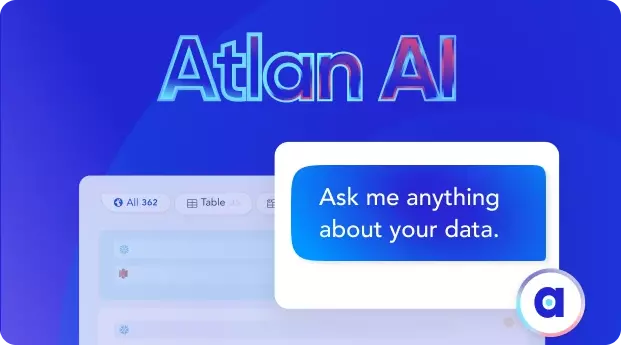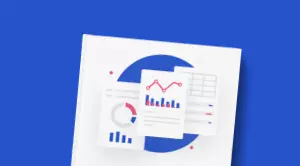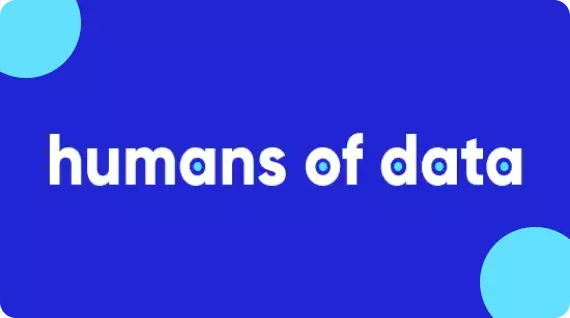11 Must-Have Skills for DataOps Engineers in 2024

Share this article
DataOps (Data Operations) is an agile methodology aimed at improving the quality and accelerating the analytics cycle. It emphasizes communication, collaboration, integration, and automation among data scientists, data engineers, and other stakeholders in the data ecosystem.
A DataOps engineer plays a critical role in this framework, providing the technical expertise required to create and maintain a scalable, robust, and efficient data pipeline.
Given the rapidly evolving technology landscape, a DataOps engineer in 2024 would need a mix of hard and soft skills to succeed.
Table of contents #
- What does a DataOps engineer do?
- 11 Essential technical skills required by DataOps engineers
- How to become a DataOps engineer?
- Bottom line
- Related reads
What does a DataOps engineer do? #
A DataOps engineer is responsible for creating, maintaining, and optimizing data pipelines to facilitate the smooth flow of data from various sources to the end-users, typically data scientists, analysts, and business decision-makers.
Their role is a hybrid that combines aspects of data engineering, data science, and DevOps. They work closely with other members of the data team to ensure that data is readily available, reliable, and presented in a format that’s most useful for analysis.
Some of their key responsibilities are:
-
Data extraction: Pulling data from different internal and external sources using various methods such as APIs, web scraping, or direct database queries.
-
Data transformation: Cleaning, aggregating, enriching, and transforming the extracted data so that it’s ready for analysis. This often involves using ETL (Extract, Transform, Load) tools or custom scripts.
-
Data loading: Moving the transformed data into data warehouses or other storage solutions where it can be accessed and analyzed by data scientists and analysts.
-
Data quality and governance: Implementing checks and controls to ensure that the data is reliable, secure, and used responsibly. This may include data validation, monitoring, and auditing.
-
Automation and orchestration: Using tools to automate repetitive data tasks and orchestrate complex data workflows. This helps to speed up the data analytics cycle and reduces the potential for errors.
-
Collaboration: Working with data scientists to ensure that the data meets their needs and is in a format that’s easy to work with. This often requires understanding the basics of statistical analysis and machine learning.
-
Optimization: Continuously monitoring the performance of data pipelines and making improvements for efficiency. This could involve tweaking existing ETL processes, optimizing queries, or refactoring code.
-
Scaling: Building and maintaining infrastructure that can handle growing data volumes and increasingly complex analytics requirements.
-
Documentation and best practices: Documenting processes, creating data dictionaries, and ensuring that the team follows best practices in coding and data management.
-
Keeping updated: Staying up-to-date with the latest tools, technologies, and methodologies in the data field to ensure that the data infrastructure is modern and efficient.
The role of a DataOps engineer is dynamic and evolves with the technology and needs of the business. Therefore, it’s essential for them to be adaptable and willing to continuously learn and grow.
11 Essential technical skills required by DataOps engineers #
DataOps engineers play a critical role in the modern data ecosystem, responsible for creating and maintaining the pipelines that enable rapid, secure, and scalable data analytics. Their role is a blend of data engineering, DevOps practices, and data science workflows.
The aim is to streamline data pipelines from source to consumption, thereby accelerating the cycle of analytics and decision-making. Here are the technical skills that are often required for a DataOps engineer:
- Programming languages
- Data warehousing solutions
- ETL tools
- Containerization and orchestration
- Cloud services
- Big data technologies
- Data modeling and databases
- Data version control
- Real-time data processing
- Machine learning and analytics
Let’s understand each technical skill briefly.
1. Programming languages #
Being proficient in one or more programming languages is essential for a DataOps engineer. Python is often the language of choice due to its extensive libraries and community support for data operations.
Other languages like Java and Scala are also commonly used, particularly in the context of big data processing frameworks like Apache Spark.
2. Data warehousing solutions #
Data warehousing solutions like Snowflake, Amazon Redshift, or Google BigQuery are frequently used for storing large volumes of data. Understanding the architecture, configuration, and optimization of these solutions is key to efficiently storing and retrieving data.
3. ETL tools #
Extract, Transform, Load (ETL) processes are a core part of data operations.
Mastery of these ETL tools involves understanding data extraction from various sources, data transformation including cleaning and enrichment, and finally, loading the transformed data into a data warehouse.
4. Containerization and orchestration #
With microservices architectures becoming more prevalent, skills in containerization technologies like Docker and orchestration platforms like Kubernetes are increasingly important. These technologies help in packaging, distributing, scaling, and managing applications and services.
5. Cloud services #
Most modern data architectures are cloud-based, requiring familiarity with cloud service providers like AWS, Azure, or GCP. This involves understanding the data services offered by these platforms, as well as how to configure and manage them for optimal performance and cost-efficiency.
6. Big data technologies #
Working with large datasets often necessitates the use of big data technologies like Hadoop and Apache Spark. These frameworks are used for distributed data storage and processing, and knowing how to work with them is often critical for scalable data operations.
7. Data modeling and databases #
Understanding both SQL and NoSQL databases is important. This involves not just knowing how to query databases, but also understanding how to design and model data structures for different types of data and use-cases.
8. Data version control #
Data version control tools like DVC or even traditional version control systems like Git are used to track changes in data and code. This is essential for reproducibility and auditing.
9. Real-time data processing #
Real-time data processing frameworks like Apache Kafka and RabbitMQ are used to handle real-time data streams. Knowledge of these technologies is critical when operations require real-time analytics and decision-making capabilities.
10. Machine learning and analytics #
While not the primary focus for many DataOps engineers, a basic understanding of machine learning algorithms and analytics tools can be beneficial. This helps in more effective collaboration with data scientists and understanding the end-to-end data lifecycle.
In a nutshell, a DataOps engineer in 2024 would need a blend of programming, data engineering, cloud computing, and big data skills, along with a smattering of machine learning and analytics understanding to be effective in their role.
How to become a DataOps engineer? 11 Step roadmap! #
Developing the required skills for a DataOps engineer involves a multi-pronged approach that encompasses programming, data engineering, cloud computing, and several other domains. Here’s a detailed roadmap on how to acquire and hone these skills:
1. Getting started with programming languages #
- Choose a language: Python is a good starting point given its versatility and extensive libraries for data manipulation and analytics. Other options include Java and Scala.
- Learning platforms: Utilize online platforms like Codecademy, Udemy, or Coursera to get the basics down.
- Practice: Work on small projects or contribute to open-source projects to get hands-on experience.
- Master libraries: For Python, libraries like Pandas for data manipulation and NumPy for numerical operations are essential.
2. Mastering data warehousing solutions #
- Understand the basics: Learn about concepts like star schema, snowflake schema, and data lakes.
- Pick a platform: Choose among popular platforms like Snowflake, Redshift, or BigQuery and dive deep.
- Hands-on experience: Most platforms offer free tiers or trial periods. Use this to get hands-on experience.
- Tutorials and documentation: Utilize platform-specific tutorials and documentation to understand best practices.
3. Excelling in ETL tools #
- Understand ETL processes: Know what Extract, Transform, and Load (ETL) entails.
- Tool selection: Choose an ETL tool like Talend, Informatica, or Microsoft SSIS that is widely used in your desired industry.
- Hands-on projects: Work on real-world ETL projects, possibly by using publicly available datasets.
- Learn scripting: Some ETL tools allow for custom scripting, learn the languages that are supported (often SQL or Python).
4. Understanding containerization and orchestration #
- Start with docker: Learn the basics of Docker, including how to create a Dockerfile and how to use Docker Compose.
- Move to kubernetes: Once comfortable with Docker, start learning Kubernetes to understand how large systems are orchestrated.
- Mini-projects: Create a mini-project where a microservices architecture is containerized and orchestrated.
- Advanced features: Look into advanced topics like auto-scaling, load balancing, and self-healing in Kubernetes.
5. Getting comfortable with cloud services #
- Choose a provider: Pick one among AWS, Azure, or GCP based on your needs or industry requirements.
- Certification courses: Consider taking a certification course to validate your skills.
- Hands-on practice: Use free tiers to practice what you’ve learned. Create virtual machines, databases, and even simple applications.
- Understand pricing: Learn how to manage and optimize costs in a cloud environment.
6. Diving into big data technologies #
- Begin with Hadoop: Understand the Hadoop ecosystem including HDFS, MapReduce, and YARN.
- Learn Apache Spark: Move on to learning Spark for more efficient data processing.
- Real-world problems: Try solving problems that require distributed computing to get hands-on experience.
- Cluster management: Learn how to manage a cluster for big data processing.
7. Becoming proficient in data modeling and databases #
- SQL and NoSQL: Learn both SQL databases like MySQL or PostgreSQL and NoSQL databases like MongoDB.
- Data modeling: Understand how to design databases, including creating tables, indexes, and relationships in SQL, or how to structure documents in NoSQL.
- Practice queries: Get comfortable with complex SQL queries and NoSQL queries.
- Normalization and denormalization: Learn when to use which approach for optimum performance.
8. Learning data version control #
- Start with Git: Learn basic Git commands and understand the Git workflow.
- Move to DVC: Data Version Control (DVC) is more specialized for data and can be layered on top of Git.
- Implement in projects: Use version control in your personal projects to understand its importance and functionality.
9. Understanding real-time data processing #
- Learn basics of streaming: Understand what data streams are and how they differ from batch processing.
- Apache Kafka or RabbitMQ: Pick a framework and learn its architecture, components, and workflow.
- Hands-on: Create a basic real-time analytics dashboard using your chosen framework.
10. Introduction to machine learning and analytics #
- Understand basics: Know what machine learning is and understand some basic algorithms.
- Collaborate: Work on projects where you collaborate with data scientists to get an idea of how machine learning fits into data ops.
- Tools: Get comfortable with basic data analytics tools like Tableau or Power BI.
11. Keeping updated #
- Follow industry news: Keep up to date with the latest in data ops, data engineering, and relevant technologies.
- Online communities: Join forums, social media groups, or newsletters focused on DataOps and related fields.
- Webinars and conferences: Attend industry-specific events, either physically or virtually, to network and learn.
By following this roadmap, you’ll not only gain the essential skills but also the practical experience needed to excel as a DataOps engineer. Remember that the field is ever-evolving, so continuous learning is key.
Bottom line? #
-
In short, the role of a DataOps engineer demands a versatile skill set that bridges programming, data engineering, cloud technologies, and more.
-
With proficiency in ETL tools, containerization, big data frameworks, and real-time processing, coupled with a solid understanding of data warehousing, databases, and version control, DataOps engineers are pivotal in orchestrating efficient and agile data pipelines.
-
This dynamic role underscores the importance of continuous learning and adaptability to remain at the forefront of a rapidly evolving data landscape.
DataOps engineer skills: Related reads #
- What is DataOps? — DataOps Framework & 9 Key DataOps Principles
- What is DataOps & How Does it Help Data Management?
- The Rise of DataOps
- Gartner on DataOps: Insights, Recommendations, Tools
- Data Catalog for DataOps: 7 Key Capabilities to Consider
- DataOps vs. DevOps Explained
- Fortune 500 embraces Dataops - Case studies
Share this article









